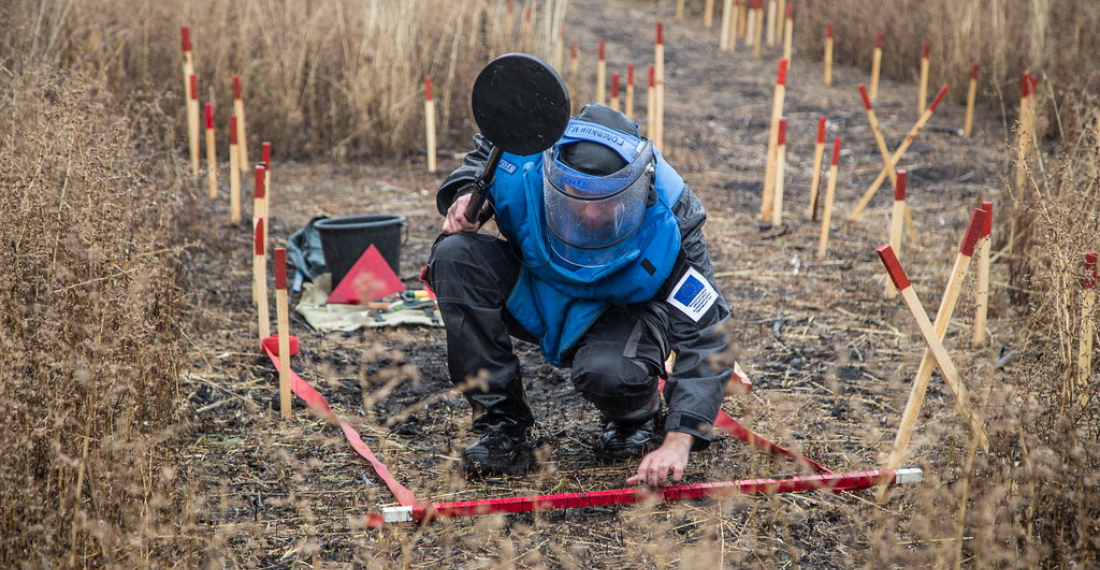During the EU-Ukraine summit occurring in Kyiv on Friday (3 February), the EU High Representative and Vice-President Josep Borrell announced an additional €25 million to support Ukraine’s demining of territories temporarily occupied by Russia.
Speaking on a visit to a demining site, Borrell said:
"I was told that 30% of your territory is being affected by some kind of explosives due to the war and due to the will of the Russian troops when they withdraw of leaving mines [behind] in order to cause damage to the civilian population [...] So, we will try to support you. And there is the first tranche of €25 million in order to increase your modern equipment to save lives and allow your soldiers to work in safer conditions. This is one of the worst consequences of the war: when the countryside, the forest, even the waters, become contaminated by explosives. The civilian population, mainly children, are the victims of that. So, you can count on our support."
"The additional funding announced on 3 February will include essential equipment for Ukrainian state mine action operators and support the capacities of the Ukrainian authorities to effectively manage the national mine action sector", according to the European Union External Action Service. This will help to address large-scale contamination caused by mines and explosive remnants of war resulting from Russia's full-scale invasion of Ukraine.
Mines and explosive remnants of war remain a danger long after any given conflict is over, including in areas of Ukraine recently liberated from Russian occupation. They threaten returning civilian populations and the revival of economic activity, especially in the transport, and agricultural sectors. Demining will therefore play a very important role in post-conflict reconstruction and rehabilitation of Ukraine and its society.






